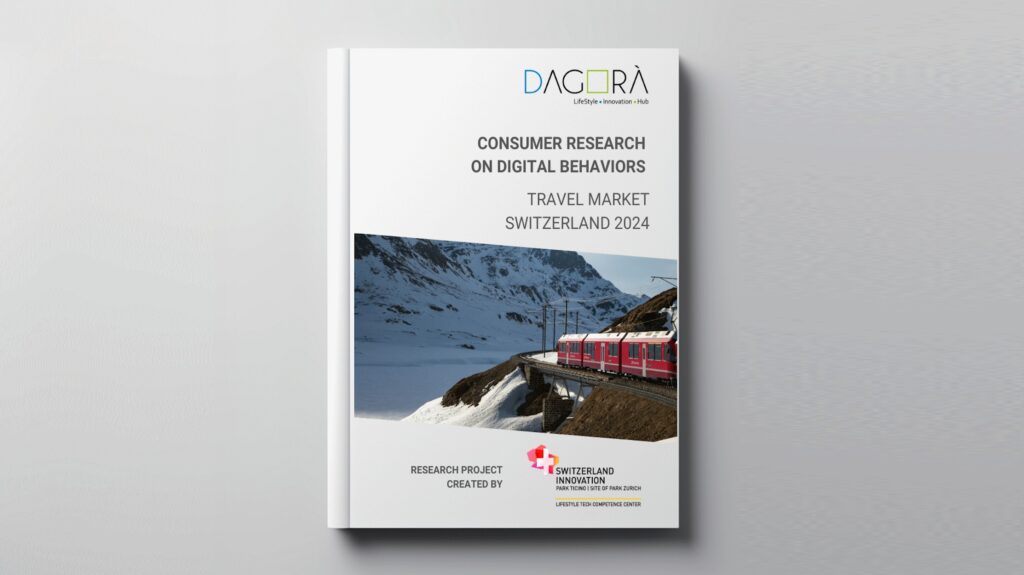Insight 3 min read
Digital Revolution in Switzerland’s Travel Industry
A consumer research for trends and insights for 2024

In 2024, Switzerland’s travel and transportation industry will demonstrate robust digital engagement. A comprehensive consumer research study reveals that 98% of respondents have made an online purchase within the past year, underscoring the high level of online activity in this sector (2). The average purchase value for these transactions exceeds 2200 CHF per consumer, highlighting Switzerland’s leadership in online purchase frequency and expenditure.
Omnichannel Approach and Sustainability
One of the driving forces behind this trend is the omnichannel approach adopted by Swiss consumers (2). They typically initiate their travel planning and research online, comparing options and prices, before finalizing their transactions either through digital platforms or traditional travel agencies. This dual-channel strategy caters to varying consumer needs, blending the convenience of online shopping with the personalized service offered by physical agencies.
Despite the high level of digital engagement, a discrepancy exists between consumers’ sustainability attitudes and their actual purchasing behaviors (40). While 71% of Swiss e-purchasers express a favorable view toward eco-conscious options, only 40% have engaged in sustainable purchases. This gap suggests a potential area for growth, as travel service providers could better align their offerings with consumers’ environmental concerns to capture this market segment.
Payment Methods and Device Usage
The travel sector in Switzerland has experienced a moderate growth rate of 3%, contrasting with the stagnation observed in other industries (2). This growth is partly fueled by the diverse payment options available to consumers. Credit cards are the predominant method, used by 88% of online shoppers, followed by Twint at 61% and PayPal at 39% (3). The preference for these secure and convenient payment methods has facilitated the expansion of online transactions. Both PCs and smartphones are the preferred devices for online shopping, with a notable increase in mobile shopping activities (20). Initially led by younger consumers, smartphone shopping now sees adoption across all age groups, indicating a significant trend toward cross-device shopping behavior. This shift aligns with the broader digital behaviors of Swiss consumers, frequent online shoppers engaging in various online activities such as product research, news consumption, and music streaming.
The spending patterns within the travel industry reveal a clear preference for online platforms over traditional agencies (26). With 98% of consumers making online purchases, physical travel agencies account for only a small fraction of bookings. This trend is driven by the convenience, accessibility, and variety of online platforms offered, particularly for hotel accommodations and transportation services such as trains and planes. Swiss consumers’ strong preference for digital channels is evident in the significant proportion of online purchases in the travel sector, with plane/train transportation services and hotel accommodations accounting for 55% and 60% of online purchases, respectively (25). This preference contributes to the industry’s growth and reinforces the importance of digital platforms in the travel ecosystem.
The Swiss travel industry is characterized by high online activity, significant consumer spending, and a growing interest in sustainable travel options. The omnichannel approach, coupled with a diverse range of payment methods and increasing mobile shopping, underscores the digital transformation within the industry. As service providers continue to adapt to these trends, the Swiss travel sector is well-positioned for sustained growth and innovation. For more information, please visit: https://reports.dagora.ch/
